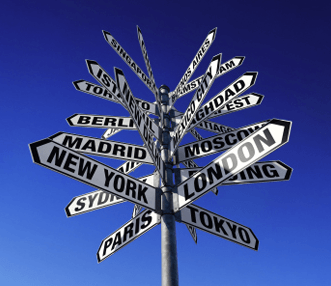
"Living in rural settings exposes you to so many marvelous things- the natural world, the particular texture of small town life and the exhilarating experience of open space." Susan Orlean.
I had to travel to a rural setting in order to make time to attend a social function which was an early morning event on Saturday. To escape the stress of human and vehicular traffic, I left Accra at dawn on Friday and in a matter of three hours, I was in my village Agbozume-Klikor, a small village in the Volta Region. Apart from the rousing welcome, the fresh air and serene environment got me sleeping on a lazy chair in the open under a shade. Then, it dawned on me that every young person had left the village for Accra in search of a better life, as all who served me and made me feel at home were old men and women expecting their young sons and daughters to send them money from Accra while the fertile lands lie fallow with overgrown grass turning arable lands to waste lands. I thought to myself while having my rest "If this situation should persist for the next 10 years, life in this set up will be extinct".
Back in the capital
Over the years, Greater Accra, Ghana's capital town has been struggling with dense population issues owing to the rural urban migration phenomenon across the country. In 2012, Greater Accra recorded a population of 2.27 million people with a land size of 173 km². Since then, the influx of people into the capital has doubled the population in the capital and the growth rate being recorded is quiet alarming and a cause of concern.
Why Accra?
Several factors account for the influx. Influenced by the lifestyles of relatives and friends living in Accra most of these migrants are of the view that Accra is full of goodies, a place to make a business dream come true, a place to start life and to make money.
The daily morning and evening rush by workers across the capital is a different urban setting as compared to that of the rural setting where one would mostly see adults setting out to farms. A typical scene is that of farmers' children walking ahead of them or behind them with their farm tools by way of support.
The rush hours in the mornings and evenings are, therefore, not familiar scenes in the rural settings.
Our rural people
The rural areas of the country contribute significantly to the national economy as most of the agricultural produce? food and livestock ?emanate from the rural people's hard work on the farms. On the other hand, the capital, Accra, is choked with concrete structures and industries while most farm lands have been taken over by huge edifices.
Even though the cultural values that nurture us as Ghanaians, teach us to give respect, recognition and treat with value those who have nurtured us to grow as responsible adults, our rural people who feed the nation have, apparently, not been given due recognition and, perhaps, respect. As a result, the youth, who see agriculture as unrewarding, leave the rural areas for the cities, especially Accra.
Pressure on our resources
Accra, therefore, has to grapple with the dense population with its attendant consequences. First, Accra has to share very limited resources with the growing population. It can be seen, for example, that our roads wear off easily and quickly because the number of vehicles plying them are quiet enormous. Hospital facilities are choked because of the increased population as they have to cater for too much more than they were originally meant for. Our market places are equally choked and one can hardly swing one's arms in the market. Food is expensive because few have been left in the villages to farm for all to enjoy and the youth with the energy to produce more are in the cities selling dog chains and mobile phone accessories, among others. Filth has engulfed the city and crime is on the ascendancy. Fire outbreaks are rampant because precautionary measures by squatters in parts of the city and in the markets are ignored or are non-existent.
Interventions
To restore the cultural values of giving respect and recognition when, and to whom, it is due, the first day of December; every year has been dedicated to farmers and fishermen.
Farmers' Day has been set aside to encourage farmers through awards. Farmers from rural communities who perform exceptionally well are selected and given awards to boost their morale.
Also, the former 'Acheampong baby' which placed National Service personnel on farms to help create interest in the youth to veer into farming had been re-instituted even though during the administration of the late president, John Evans Atta Mills, little impact had been made in that area.
Currently, the President Nana Addo Dankwa Akufo-Addo has, in fulfillment of his campaign promise, begun the implementation of the Planting for Food and Jobs interventions to encourage more of the youth to go into farming.
Under the programme, produce from the farm is expected to feed factories under the One District, One Factory Agenda, leading to the creation of more jobs in the rural areas, thereby, curbing the rural-urban drift and rather encourage an urban-rural drift which will create a better condition for its citizens through increased productivity and reduce poverty.
Conclusion
Just as we have waged war on some practices such as illegal mining, armed robbery and other criminal activities that are not helping in the positive development of our country, It is equally important to endear the youth to farming and rural life so as to keep the country's food basket full.
To avoid the rural-urban drift, which is a canker eating deep into the coffers of governments, and to endear the youth to farming and rural life means initiating good policies and creating favorable conditions to attract them to remain in the rural areas. There is still life in our rural areas, lets enliven it.
The writer is a staff of the Information Services Department (ISD).
This email address is being protected from spambots. You need JavaScript enabled to view it.
Read Full Story




















Facebook
Twitter
Pinterest
Instagram
Google+
YouTube
LinkedIn
RSS